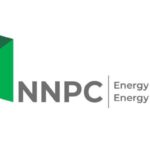Unarguably, no nation can sustainably develop beyond its human capital base. Adam Smith posited way back in history that the wealth of nations is directly proportional to the number and extent of development of their population’s capacities. Human capital development, institutional capacity building and promotion of research for indigenous technology development are parameters that are cogent and compelling to the growth and development of any nation. The Petroleum Technology Development Fund, PTDF, was established to give effect to these aspirations regarding the oil and gas industry which occupies a primary position in the economy of Nigeria as the highest revenue earner. With a mandate to train Nigerians to qualify as Graduates, Professionals, Technicians and Craftsmen in the fields of Engineering, Geology, Science and Management in the Petroleum industry, the establishment of PTDF was the first major step by the Federal Government at institutionalizing the policy of local manpower development in the oil and gas industry in Nigeria and an expression of the need to maximize the gains from hydrocarbon resources.
This is because for Nigeria to derive maximum benefits from its natural resource endowments, its citizens should and must participate effectively in the operations and management of particularly the oil and gas industry which contributes over 80% of the foreign exchange earnings and the mainstay of the economy. The poor linkage between the oil and gas industry and the Nigerian economy is attributable to the insignificant participation of Nigerians in the development of its hydrocarbon resources due to, among others, constraints of local skill and competencies gap.
As the only agency of government with the onerous responsibility of developing and enhancing the local manpower requirement of the oil and gas industry, PTDF has since it became a fully functional agency of government, eighteen years ago, carried out a number of development interventions aimed at producing skilled, competent and qualified local manpower for the industry as well as strengthening local oil and gas training institutions. With the coming of the administration of President Muhammadu Buhari in May, 2015, the Fund took a deliberate step to align itself with the vision and mission of the administration by introducing measures to reposition the Fund’s effectiveness in the discharge of its mandate of Capacity building for the oil and gas industry.
The Executive Secretary, PTDF, Dr Bello Aliyu Gusau who was appointed by the administration in September 2016 initiated a review of all the Fund’s interventions and followed up with the launch of a new Strategic direction document to guide the implementation of the Fund’s programmes and projects. The new strategic agenda was anchored on six strategic priorities: These are domestication of the Fund’s interventions, creating linkages with the Nigerian oil and gas industry, utilization of oil and gas centers of excellence developed in strategic locations, institutionalization of efficient and effective internal processes, full regulatory compliance and due process and repositioning PTDF to be a major source of cutting-edge research for the Nigerian and global oil industry.
The impact was to re-invigorate the programs and projects of the Fund, some of which were on the verge of being abandoned. For example, the two Premier Centers of Excellence being developed by the Fund, the National Institute of Petroleum Studies (NIPS), Kaduna and the Centre for Skills Development and Training, (CSDT), Port Harcourt, bounced back to life with developments in the two institutions approaching the threshold that activities can commence in some of the components that have been fully developed. Beyond the training of Management Staff of Oil and Gas Institutions, the National Institute of Petroleum Studies, Kaduna will in addition host post graduate training as part of PTDF domestication policy by undertaking splitsite PhD programmes. It will also house other initiatives such as world class analytical laboratory for Research and Development activities, Centre for domestication of Gas Technology, and Centre of Excellence for Welding and Fabrication.
The projection is that the institute will become the human resource hub for the West African sub-region. The new strategic direction agenda for PTDF also affected the implementation of the Fund’s overseas scholarship scheme OSS. Far-reaching innovations were introduced to ensure long term sustainability of the scholarship scheme. These include a strategic partnership engagement with universities in France, Germany and China for tuition free and highly discounted tuitions, streamlining the universities of study in the United Kingdom, and a review of the selection process to eliminate the requirement of aptitude test for Msc candidates, the use of scratch cards in the application process, and the elimination of the age barrier for those aspiring to the PhD scholarship awards.
The Fund in 2017 initiated a Post Training Attachment scheme for graduates of its Welders Training and Certification Programme (WTCP) in collaboration with the three major refineries in Kaduna, Port-Harcourt and Warri as a stop gap intervention to expose the beneficiaries to practical on –the- job experience. Apart from building up the technical and vocational skills and proficiencies of the participants, the Post training attachment programme ensures that the skills acquired by the participants at the Welders Training and Certification Programme are not lost due to redundancies. It will at the same time open up opportunities for direct engagement of the trainees by the industry. PTDF also introduced a quarterly lecture series to increase its engagement with the oil and gas industry and keep staff of the Fund abreast on issues and new developments in the industry.
It is a corporate learning and growth initiative to equip staff of the Fund with the commensurate knowledge of the industry to effectively develop the capacity required by the industry for its operations. The creation of a Gas Technology Development Division by the current leadership of PTDF is indicative of its renewed determination to provide the relevant local capacity required to achieve governments renewed focus on gas. PTDF is in this regard developing and implementing strategies towards building human and institutional capacity to support government vision of moving Nigeria from a crude oil export-based economy to a gas-based industrial economy. Such capabilities include gas exploration, production and commercialization as well as gas processing technologies, and gas conversion technologies.
The sponsorship of research in Nigerian Universities through the endowment of professional chairs and award of annual research grants to local researchers by PTDF is contributing in finding solutions to current and future problems of the oil and gas industry. Its recent investigation of the hydrocarbon prospectivity in the Chad Basin, the Sokoto Basin and other inland basins in the country is contributing to realizing the full exploration of the vast of hydrocarbons potentials of the inland basins, a key initiative of the National Oil and Gas Policy to harness the hydrocarbon reserves in Nigeria’s frontier basins.
Also, the Fund through its intervention in the research succeeded in developing locally the Zeolite Catalyst to solve the perennial shortage of refining catalysts that leads to frequent production shutdowns in our refineries. To maximize value for this discovery, the Petroleum Technology Development Fund inaugurated the first Nigeria Zeolite working group for large scale production and commercialization of home grown zeolite catalysts. The working group comprise of stakeholders from NNPC and its refining subsidiaries, Dangote refinery group, NCDMB and the Ahmadu Bello University, Zaria. Otisi is the Head of Press and External Relations, PTDF



